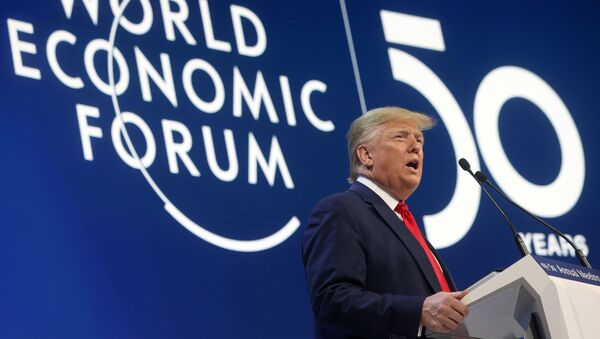Donald Trump made his claim about planned Iranian attacks against four US embassies by misinterpreting intelligence data that did not mention any specific threats from Iran, The Daily Beast reports citing sources with knowledge of the situation.
Sources told the website that US embassies were simply listed among possible targets of Iranian retaliation at an intelligence briefing, but weren’t suspected to have been in any imminent danger. They also said that they never heard the exact number of embassies allegedly being threatened.
“The moment he heard the word ‘embassies,’ Trump immediately chimed in, interrupting the meeting to grill his briefers on that issue, according to one US official. From there, he began to treat this possible threat as a near-certain danger,” the report says.
“There were definitely questions [at the time, internally] about whether he had just made it up on the spot,” one White House insider recalled.
Qassem Soleimani, a powerful political figure in Iran, was killed in a US drone strike just outside of the Iraqi capital, Baghdad, on 3 January. The killing provoked a series of Iranian missile strikes against American soldiers in Iraq, which caused no casualties, resulted in the accidental shoot-down of a Ukrainian jet and instilled fears of a full-scale armed conflict.
How did the White House justify that hit job?
The Trump administration has shifted its rationale for the assassination. Within hours, the Defense Department said in a statement that the strike “was aimed at deterring future Iranian attack plans” and Soleimani was to blame for the deaths of hundreds of Americans.
Later that Friday, Secretary of State Mike Pompeo told reporters that there reports of an “imminent” attack from Iran, and that the US had sought to disrupt it. Trump repeated that claim on the same day.
On 9 January, Trump claimed that Soleimani was plotting to “blow up” an American embassy, apparently just hours after a briefing in which the embassies were brought up. In the following days, he went on to suggest that Iran had planned to attack precisely four US embassies or an unspecified number of military bases. Neither Trump nor any of his officials have provided any evidence whatsoever to back up those claims. Furthermore, Defense Secretary Mark Esper said he didn’t see specific evidence of Iran’s plot.
Why the imminent threat explanation?
In the end, Trump said it “doesn’t really matter” whether Soleimani posed an actual threat because he had done “horrible” things in the past. It does matter, though, as international law only allows an attack on an enemy as a self-defence – namely if that enemy is thought to be posing an imminent threat. The US government’s shaky reasoning for ordering the assassination, as well reports that they had been planning it for months, cast doubt on the legality of the attack.
There’s more disagreement among legal experts when it comes to the question of whether the strike as in accordance with domestic law. Many argue that Congress must vote first to authorise such an attack – as it did with the use of military force against terrorists after 9/11 and ahead of the Iraq invasion – but others insist that the self-defence exception should also be in place if there is an imminent threat.
Although Senate Minority Leader Chuck Schumer has said that “it is essential for Congress to put a check on this president,” Trump has seen no real pushback from the Democrats over the Soleimani killing – another proof that the war powers of Congress have been increasingly eroded.




